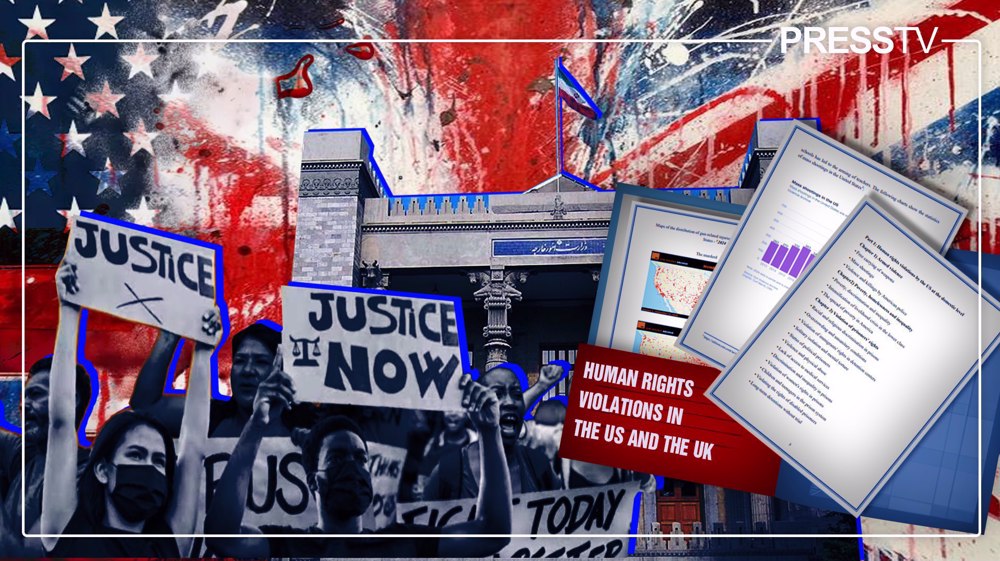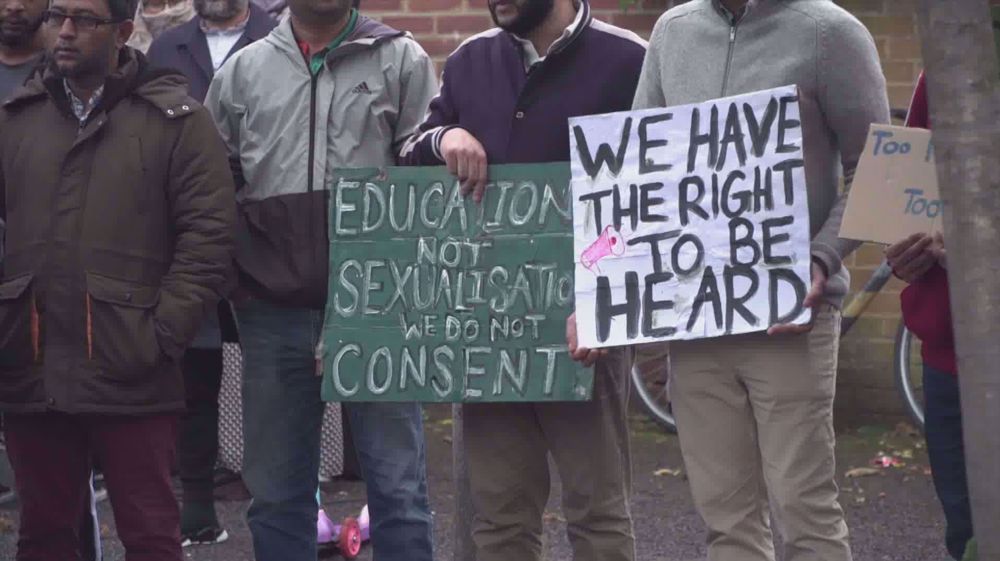UK rights group slams broad 'illegality', anti-Muslim trait of govt.’s anti-terror plan
A British rights group has expressed alarm over the UK’s controversial Prevent strategy, insisting that the purported anti-terror plan has led to unlawful collection of personal data and facilitated “widespread illegality.”
Describing the government policy as "confused, secretive, and illegal," a report published this week by Rights and Security International (RSI) further emphasized, "Prevent, like other aspects of the government's national security strategy, operates largely in secrecy. The handling of people's personal data under Prevent is no exception."
The report also pointed out that the holding of information in Prevent databases, which is accessed by the police, intelligence services and other public bodies, appeared to be in breach of the European Convention on Human Rights (ECHR).
"We conclude that, despite an abundance of general government guidance about Prevent, little information exists about how the government believes agencies such as police, schools, hospitals and local authorities should treat people's personal information under Prevent," it added as cited in a Friday report by the London-based Middle East Eye (MEE).
"To put it bluntly, the government has not established a sufficient evidence base to justify data gathering, storage and sharing under Prevent as effective in – let alone necessary to – stopping acts of terrorism," the report noted.
Muslims, other minorities mostly targeted by Prevent
Meanwhile, RSI’s Jacob Smith – who helped compile the alarming report – told MEE that "since Prevent’s introduction, the strategy has negatively affected Muslim and other minority communities, activists or individuals who hold different political or religious opinions."
Smith further expressed concerns that the hoarding of Prevent data would disproportionately impact Britain's Muslim community and lead them to be targeted by British police and other security agencies.
"Official government statistics indicate that Muslims are more likely to be referred to Prevent unnecessarily, yet the police and other public authorities still want to hoard this data – putting the person under constant suspicion and impacting their daily life," Smith emphasized.
He then cited an example of a 2020 High Court case in which a mother filed a claim against the London Metropolitan Police, which insisted on retaining her 11-year-old son's data for six years despite admitting that his referral was a mistake.
“While in theory this applies to all individuals referred to Prevent, the fact remains that more Islam-related referrals are classed as mistaken than any other category of extremism that the government identifies,” Smith reiterated.
“As such, they are more likely to have their data held unnecessarily – when they have been held, by the government’s own reasoning, to not require intervention.”
While the RSI report acknowledges that British law allows the collection and retention of data by the intelligence services "potentially on a massive scale" on national security grounds, it also points out that the UK government has not demonstrated that the retention of data gathered through Prevent was a necessary or effective means of stopping terrorism.
Meanwhile, UK’s new Prime Minister Rishi Sunak vowed during his campaign for the leadership of the ruling Conservative Party that Prevent should be reformed, suggesting he would treat those who "vilify Britain" as extremists.
"There is no more important duty for a prime minister than keeping our country and our people safe," Sunak insisted. "Whether redoubling our efforts to tackle Islamist extremism or rooting out those who are vocal in their hatred of our country, I will do whatever it takes to fulfill that duty."
Sunak further claimed that Islamist extremism was "the single largest threat to the UK's national security," noting that the Prevent strategy failed to address it.
According to the RSI report, it was also likely that the British government was sharing data gathered through Prevent with other countries.
The Prevent Duty, introduced in 2015, requires all public bodies including universities, schools and hospitals to refer people to the program if they are assessed to be vulnerable to being drawn into terrorism.
Critics of the controversial program, including Muslim community and human rights advocacy organizations, argue that it discriminates against Muslims and may be counter-productive.
VIDEO | Anniversary of Hind Rajab's martyrdom
VIDEO | 'Friends of Palestine' demands suspension of Israel from UN bodies
Trump insists Egypt, Jordan will accept displaced Gazans
VIDEO | Press TV's news headlines
Resistance leaders pay tribute to Hamas military commander
Sweden to give Ukraine $1.2bn in military aid
VIDEO | Resistant prisoners released
Turkey says Israeli airstrike killed three nationals on Lebanon border














 This makes it easy to access the Press TV website
This makes it easy to access the Press TV website